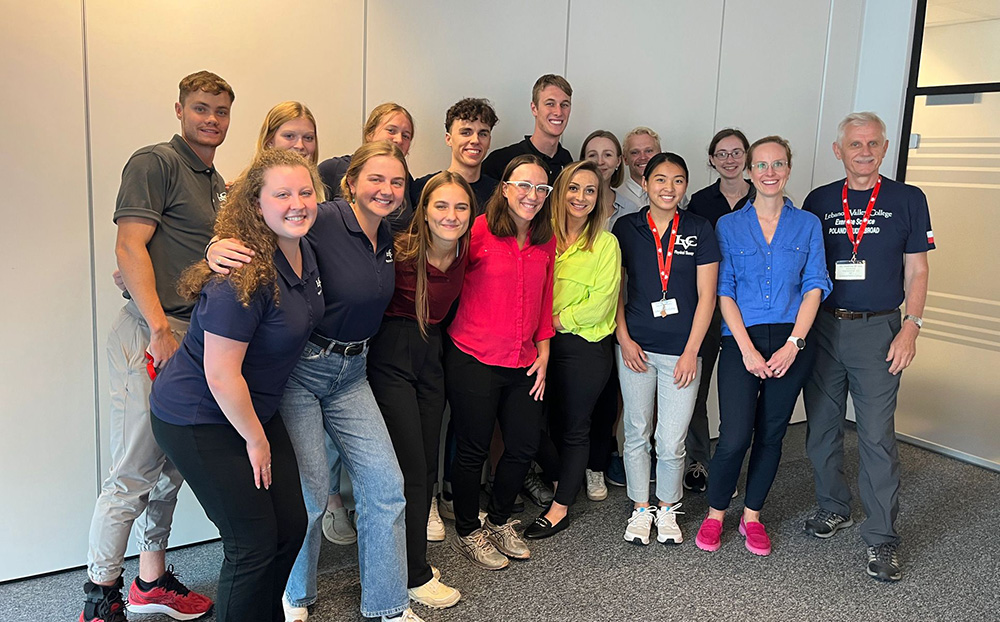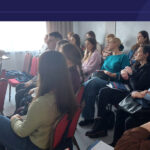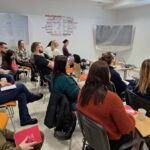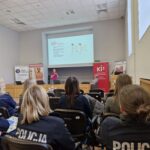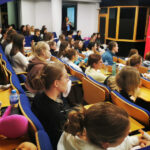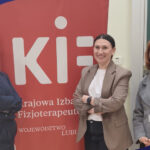Biuro KIF odwiedzili studenci fizjoterapii z USA
28 lipca br. w biurze KIF gościła grupa studentów fizjoterapii z Department of Exercise Science Lebanon Valley College (Annville, Pensylwania), jednej z wiodących uczelni kształcących fizjoterapeutów w Stanach Zjednoczonych. Wizyta w Biurze KIF była zwieńczeniem blisko trzytygodniowego pobytu (wizyty branżowo-kulturowo-poznawczej) studentów w Polsce pod przewodnictwem i opieką profesora Andrzeja Miłosza – fizjoterapeuty, praktyka i wykładowcy na ww. uczelni. Studenci odwiedzili placówki rehabilitacyjne w różnych polskich miastach, brali udział w spotkaniach na uczelniach kształcących fizjoterapeutów, a także mieli czas na zwiedzanie i poznawanie polskiej kultury. Kilka dni wcześniej, 25 lipca br. grupa miała okazję poznać unikatową w skali świata i Polski metodę subterranoterapii, jaką wykorzystuje się w ramach pobytów podziemnych w Uzdrowisku Kopalnia Soli w Wieliczce. Goście mieli możliwość podejrzenia pracy zespołu fizjoterapeutów w warunkach podziemnych oraz spędzić noc 135 metrów pod ziemią. Studentów szczególnie interesował profil pacjenta i proponowane terapie oraz zakres kompetencji fizjoterapeutów w ramach pracy na oddziale dziennym rehabilitacji. Padło wiele pytań dotyczących sposobu i zasad realizacji świadczeń z zakresu rehabilitacji w Polsce i miejsca fizjoterapeuty w tym systemie. Studentów pozytywnie zaskoczyła mnogość dostępnych form rehabilitacji w ramach publicznego systemu ochrony zdrowia. Dyskutowano o podobieństwach i różnicach w tym zakresie w innych krajach i wywnioskowano, że najbliższy ideałom jest model, w którym fizjoterapeuta ze względu na swoją szeroką wiedzę i kompetencje powinien stanowić pierwsze ogniwo, do którego zgłasza się pacjent i jednocześnie “most” pomiędzy lekarzem, do którego jest kierowany w razie konieczności. Spotkanie w Wieliczce odbyło się z udziałem i pomocą fizjoterapeutek Igi Dziedzic oraz Aleksandry Krzywonos, specjalistki fizjoterapii pracującej na co dzień w wielickim Uzdrowisku, reprezentujących zespół ds. współpracy międzynarodowej KIF. Podczas spotkania w Biurze KIF o tym, czym jest samorząd zawodowy, jak funkcjonuje i czym się zajmuje (m.in. projekt FIZJO-LEARNING), a także o fizjoterapeutach i fizjoterapii w Polsce opowiedziała studentom Weronika Krzepkowska, odpowiedzialna za współpracę międzynarodową. Dr hab. Magdalena Hagner-Derengowska, prof. UMK przybliżyła proces kształcenia fizjoterapeutów w Polsce, prezentując całą ścieżkę edukacji od warunków koniecznych do podjęcia studiów, przez przebieg studiów, aż do uzyskania prawa wykonywania zawodu. Wojciech Komosa, kierownik Działu Komunikacji i Marketingu, przekazał również informacje o działaniach promocyjnych kierowanych do społeczeństwa, które realizuje KIF. Studenci zadawali wiele pytań, dopytywali o rolę fizjoterapeutów w profilaktyce i ich miejsca pracy. Z dużym zainteresowaniem spotkała się także możliwość publikacji w czasopiśmie naukowym KIF Physiotherapy Review. Pod koniec spotkania dyskutowano o różnicach i podobieństwach między edukacją fizjoterapeutów w USA i Polsce, współpracy z innymi zawodami medycznymi, bezpośrednim dostępie do fizjoterapeuty, a także możliwościami rozszerzania kompetencji w naszej grupie zawodowej.



